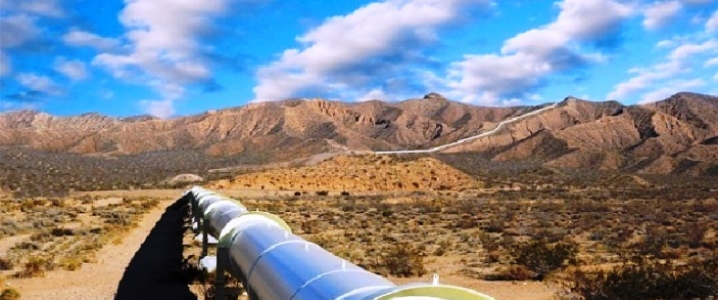Ex Minister: Unused Iraq-Saudi Pipeline Should Reopen

Iraq needs to regain access to a pipeline that was used in the past to export Iraqi crude oil via Saudi Arabia, according to Parliament member and former Iraqi oil minister, Ibrahim Bahr Al Olum.
“I have discussed this issue before with the Saudi side,” Saudi newspaper Al Hayat quoted Al Olum as saying, as carried by Reuters on Thursday.
The Iraqi Pipeline in Saudi Arabia (IPSA) has not been used to load Iraqi oil since the Iraqi invasion of Kuwait back in 1990. IPSA was laid across Saudi Arabia in the 1980s after both sides in the Iran-Iraq war attacked oil tankers in the Persian Gulf. Saudi Arabia confiscated the pipeline in 2001 in exchange for debts Iraq owed.
In 2011, Iran threatened to block the Strait of Hormuz—which lies along the route of around 40 percent of the global seaborne oil exports—in retaliation to the Western sanctions. Then Saudi Arabia reopened IPSA to be ready to have alternative export route should Iran live up to its threat.
Al Olum expects that Saudi Arabia may have a more “positive response” regarding the reopening of the pipeline, in view of improved political relations between OPEC’s no.1 and no.2, according to the Saudi newspaper.
Regarding bilateral oil relations, Iraq’s current oil minister Jabar Luaibi is currently on a visit to Saudi Arabia, where he discussed the oil markets and the need to urge all partners to stick to their commitments in the OPEC production cuts.
According to Saudi oil minister Khalid al-Falih, the talks were centered around “the need to intensify efforts to urge all parties to strengthen their commitment to the agreement to reduce production, to maintain the balance of global energy markets.”
Iraq, OPEC’s no.2 producer, has been the worst-complying member of the cartel since the production cuts began. Although its output in July dropped by 33,100 bpd to 4.468 million bpd, Iraq was still producing more than the ceiling it had signed up to—4.351 million bpd.
Earlier this week, OPEC held a meeting with some of the producers and cited its members Iraq and the UAE, as well as non-OPEC signatories to the deal Kazakhstan and Malaysia, as laggards in compliance, but added that they “all expressed their full support for the existing monitoring mechanism and their willingness to fully cooperate.”
Related News
Related News

- Keystone Oil Pipeline Resumes Operations After Temporary Shutdown
- Biden Administration Buys Oil for Emergency Reserve Above Target Price
- Freeport LNG Plant Runs Near Zero Consumption for Fifth Day
- Enbridge to Invest $500 Million in Pipeline Assets, Including Expansion of 850-Mile Gray Oak Pipeline
- Williams Delays Louisiana Pipeline Project Amid Dispute with Competitor Energy Transfer
- Evacuation Technologies to Reduce Methane Releases During Pigging
- Editor’s Notebook: Nord Stream’s $20 Billion Question
- Enbridge Receives Approval to Begin Service on Louisiana Venice Gas Pipeline Project
- Mexico Seizes Air Liquide's Hydrogen Plant at Pemex Refinery
- Russian LNG Unfazed By U.S. Sanctions




Comments